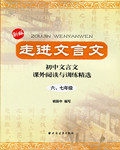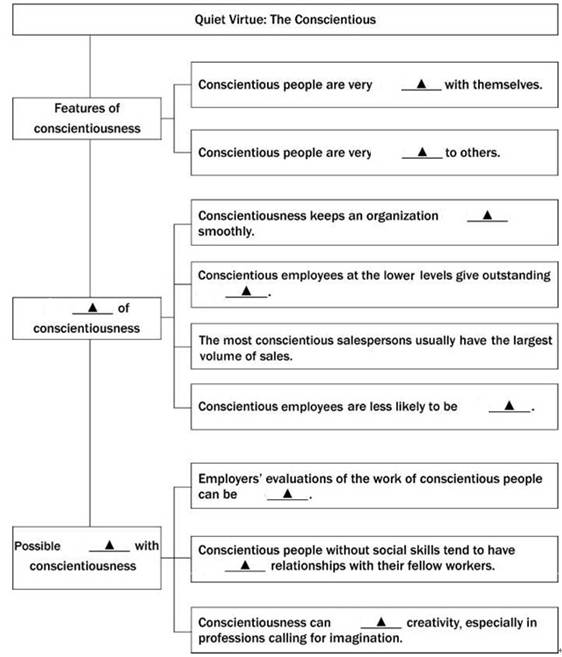题目内容
Advertising gives useful information about which products to buy. But modern advertising gives more than news 16 products and services .Today’s advertisements, or ads, try to get consumers to buy certain brands .Writers of advertising are so skillful 17 they can sometimes persuade a consumer ___18___(wear) a certain kind of clothing, eat a special kind of cereal (麦片) ,or see a movie. Consumers might never even want a product if they did not see or hear advertisements for it.
For example, you probably do not need the ___19___(new) cereal in the supermarket. There are probably many cereal brands on your kitchen shelves. You may not have space on your shelf for __20__. But if you see ads about a new cereal that is your extra - tasty and has a free prize in the box, you may want __21_. Advertising must get attention. To be 22__ (effect), it must be exciting, entertaining, or provide some pleasure. The secret of writing good advertising copy is to offer____23__ good idea as well as a product. The idea is ___24___ the advertisement is really selling. One example is an ad that says eating a certain cereal will make a person do well in sports. That cereal brand may sell better if consumers think it ____25__ (offer) strength and energy.
【小题1】about
【小题2】that
【小题3】to wear
【小题4】newest
【小题5】another
【小题6】it
【小题7】effective
【小题8】a
【小题9】what
【小题10】offers
解析【小题1】考查介词:about修饰news,关于产品的新闻
【小题2】考查so …that…句型:广告是如此有技术以至于可以说服顾客穿某种品牌的衣服。
【小题3】考查persuade sb to do说服某人做…,用to wear
【小题4】定冠词后面修饰形容词的最高级newest
【小题5】another泛指另一种麦片
【小题6】it代指上文的 a new cereal
【小题7】effect 是名词:这里be动词后面是表语用effective
【小题8】不定冠词a修饰good idea“一个好主意”
【小题9】what 引导表语从句,在表语从句中what做宾语
【小题10】考查时态:表示一般情况用一般现在时,主语是it,谓语是offers

 走进文言文系列答案
走进文言文系列答案The malls were filled with people seeking gifts for their loved ones. Some of the malls remained open around the clock, partly to satisfy our needs to buy gifts.
Behind the materialistic aspect of shopping for gifts lies the idea of caring, being attentive to the desires of special people in our lives. However, to use a well-worn play on words: it is our presence, not our presents, that truly counts. Many of us, unfortunately, can be so inattentive, even in the presence of our loved ones, that we might as well not be there at all.
Attention is one of the greatest gifts we can give each other. Companies around the globe spend billions every year on advertising to catch our attention for just a short moment at a time. Whole industries – media, entertainment, education – rely on the precious gift of our attention for their continued existence. A baby lacking attention for a long time is likely to he psychologically unhealthy.
In earlier times, both diet and attention could be left unregulated without major cause for concern. There were natural checks and balances: limited availability of food meant few got fat, for example. Similarly, in bygone times we might have spent a few hours communicating with the village storyteller, today, watching an entire TV series, while speaking to nobody, is common. In traditional societies, with smaller population, everyone would get a fair deal of attention. On many issues we might go to see Grandma or Grandpa; now we have Google and Wikipedia.
“She just wants attention.” people tend to think little of those doing things simply for attention. But the truth is that human beings need attention, and giving attention to each other is, to a large extent, what human civilization is based upon. This perhaps explains the runaway success(一举成功)of social networking sites such as Twitter and Facebook. While we use such sites for “micro blogging”, “idea voicing” and “status updates” – the reality is that we are often doing no more or less than fulfilling our basic human drive for attention exchange.
I friend you, you friend me, I retweet you, you retweet me. The charming case with which we can now get and give attention is why many people appear overly attached to their smartphones. It is also a vicious(恶性)circle. As ever more people are busy exchanging attention online, there is increasingly less attention to be paid in the real world, which forces more people to seek their attention exchange online, or else risk attention-starvation.
The very nature of attention exchange is being rapidly transformed, and there is a danger that some of us will develop unhealthy practices. Just as eating red meat every day is a bad idea, so it is with too much attention exchange. The biological consequences of our technological advancement in food production are highly visible; heart disease, diabetes and obesity. The consequences of our transformed attention exchanges will be psychological and social, and so may take longer to identify, but they will be equally damaging.
Face-to-face attention is becoming rarer, and therefore more valuable. In a sense it is priceless. And it is a gift that can be given all-year-round.
【小题1】In the first two paragraphs the author .
| A.offers advice to attention givers | B.analyses the present problems |
| C.states the necessity of presents | D.puts forward his point of view |
| A.obtain information | B.give attention to others |
| C.voice their opinions | D.notice and get noticed |
| A.limited availability of food | B.natural checks and balances |
| C.a much smaller population | D.the guidance from old people |
| A.More people will risk attention-starvation in future. |
| B.The nature of attention exchange is rarely changed. |
| C.Technological advancement contributes to all diseases. |
| D.Transformed attention exchanges do harm to society. |
| A.advocate more focus on real life attention |
| B.analyze the necessity of attention giving |
| C.give practical tips on attention exchange |
| D.recommend some social networking sites |
 A cartoon man dressed in old time pilot clothing greets visitors to Admongo. "Call me Haiz", he says upon arrival in a rocket ship that opens up with a crazy world inside it. Spacey dance music plays in the background as Haiz tells visitors that they need to learn about advertising.
A cartoon man dressed in old time pilot clothing greets visitors to Admongo. "Call me Haiz", he says upon arrival in a rocket ship that opens up with a crazy world inside it. Spacey dance music plays in the background as Haiz tells visitors that they need to learn about advertising.